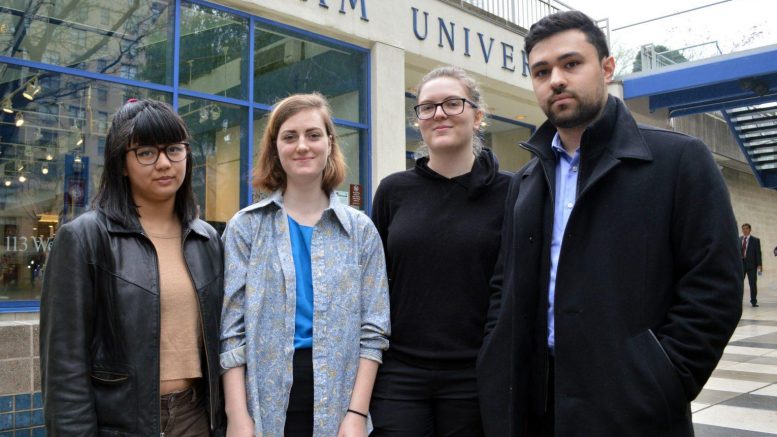For over two years, five Fordham students have waged a legal battle against Fordham University to establish a Students for Justice in Palestine (SJP) chapter at the Lincoln Center campus. On Aug. 5, the students landed a victory in court when Justice Nancy Bannon annulled the university’s decision to overrule United Students Government (USG) vote to grant club status to SJP.
SJP has faced resistance from the University to attain full club rights and privileges since 2015. In December 2016, Keith Eldredge, dean of students, said that the group’s presence on campus would be “polarizing,” and made a final decision to permanently ban the group.
The university’s decision resulted in The Foundation for Individual Rights in Education (FIRE) listing Fordham University as one of the 10 Worst Colleges for Free Speech in 2017. The ranking has been bemoaned by students on both sides of the political aisle, and is frequently used as an argument against the University involving itself in student demonstrations.
In April 2017, Ahmad Awad, Fordham College at Lincoln Center (FCLC) ’17, Sofia Dadap, FCLC ’18, Sapphira Lurie, FCLC ’17, and Julie Norris, FCLC ’19, represented by cooperating counsel Alan Levine, and the organizations Palestinian Legal and Center for Constitutional Rights, filed a lawsuit against the University in an effort to get the club recognized.
Awad, the would-be-President of the Fordham SJP chapter, told the Center for Constitutional Rights that “the administration unfairly hindered my and my fellow classmates abilities to advocate for the human rights of Palestinians.”
In February 2019, two years after the initial case filing and with only one of the original four members still a student at Fordham, Veer Sheety, FCLC ’21, also joined the lawsuit. Fordham administration protested Shetty joining the case; Dadap claimed that it “may be because they hope that after all four original petitioners graduate, student solidarity with colonized and oppressed peoples will die down.”
At a public university, the decision to deny SJP’s club status would be seen as a violation of the First Amendment. As a private institution, Fordham tried to argue in court that it was not obliged to follow the orders.
However, Fordham has made commitments to free speech and expression in its mission statement and demonstration policy, and Bannon made note of this in her decision.
“The consideration and discussion of differing views is actually part of Fordham’s mission, regardless of whether that consideration and discussion might discomfort some and polarize others,” wrote Bannon.
Bannon also wrote that Fordham University’s “disapproval of SJP was made in large part because the subject of SJP’s criticism is the State of Israel, rather than some other nation, in spite of the fact that SJP advocates only legal, nonviolent tactics aimed at changing Israel policies.”
Awad. et al. v. Fordham University is the first lawsuit in the country that challenged censorship of students advocating for Palestinian rights. The SJP victory came only a day before Rep. Doug Collins, ranking member of the House Judiciary Committtee, annouced the reintroduction of The Anti-Semitism Awareness Act. In 2018, Palestine Legal published a legal letter saying that the act’s “real purpose is to silence campus advocacy for Palestinian rights and to censor criticism of Israeli government policies.”
In a statement from the University, Bob Howe, assistant vice president for communications, reiterated Fordham’s commitment to its students and their interests, in and outside of the classroom.
“The University is reviewing the court’s decision before deciding on a way forward,” said Howe. The University did not offer a time frame or how it plans to implement Bannon’s ruling.
Source: fordhamobserver.com





Be the first to comment on "Students for Justice in Palestine Win Historic Lawsuit"